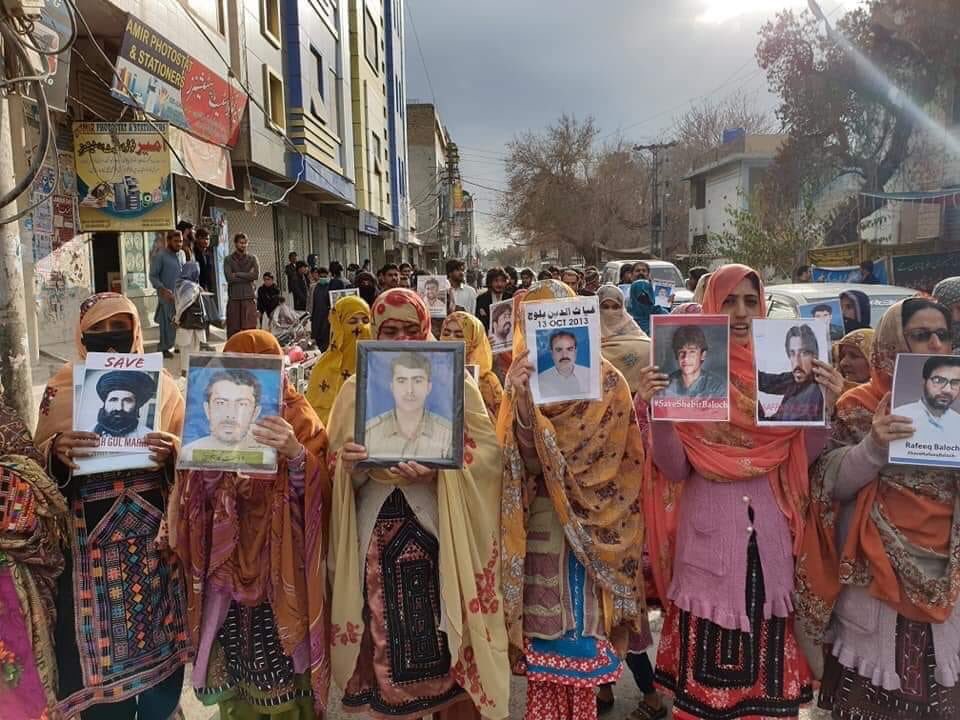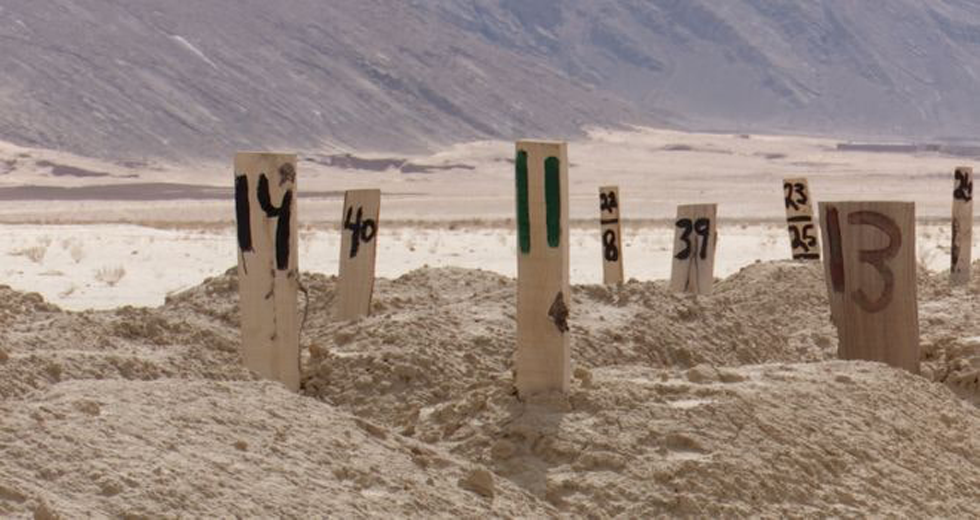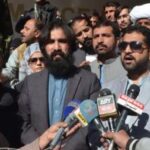In a short video broadcasted on 13 March 2019, BBC Urdu reported that Edhi Foundation (a charity organization) buried 131 mutilated and decomposed bodies in one of three graveyards in Dasht, some 30 KM away from Quetta, capital of Balochistan. All these bodies were discovered during the last 26 months from different parts of Balochistan. According to the report, the Foundation has three different cemeteries in which hundreds more decomposed bodies are buried. A worker from the foundation says that the identity of the tortured, decomposed bodies could not be established. Their faces are decomposed to a level that no one can recognize them. So they are handed over to the foundation to be buried. The same worker also claims that they (the foundation) make a last minute attempt to identify the bodies by taking the pictures and posting them on facebook, in expectation that some of their relatives may identify and bury them according to the customs. Hardly 5 to 8 percent of these bodies are identified in this way, says the Edhi personnel in the video report.
In the same video report Dr Aisha, a police surgeon in Quetta can be heard saying “These bodies are mostly of the young people. Sometimes they would acid the faces so that they could not be recognized at all”,
When the BBC reporter puts the question of these unidentified dead bodies in front of the home minister of Balochistan Zia Langov, he answers, “No one came to us and said there is a body decomposed beyond recognition so that we could help to establish the identity”, He further says “we cannot help in this until some of the family members of the deceased won’t take a step ahead and ask our help”. Such confusing statements from the civil government officials indicate their unwillingness or inability to challenge the strong grip of the military in Balochistan affairs and investigate these dead bodies popping up from Balochistan against their wishes. All reports show that these bodies are a result of the military´s notorious kill and dump policy and utmost efforts are made by the military to hinder all legal processes from lodging an FIR of enforced disappearance to determining the identity of the dead bodies.

The report has further traumatized the already devastated families of thousands of missing persons.
Since 2011, tortured and decomposed bodies are recovered from different parts of Balochistan on almost weekly basis. Most of them are buried without establishing their identities. In May 2011, a mass grave was discovered in Panjgur area of Balochistan which contained unrecognizable bodies of almost fifteen persons. Three among them were identified as Abid Shah, Safir and Sattar, all three were abducted by military in broad day light from Panjgur city and had remained forcibly disappeared until popping up as dead bodies in that mass grave.
Two other mass graves were discovered by shepherds in Tutak area of Khuzdar area of Balochistan, containing more than 100 bodies, all decomposed beyond recognition. One of the bodies had the identity card, as Naseer Ahmad of Awaran. Naseer Ahmad was abducted by military from main bazar of Awaran, in front of the public. The military then sealed the surrounding area of mass graves and buried all the bodies once again in an undisclosed grave without establishing the identities.
Since then more than a dozen of mass graves were discovered from different places at different times. Every time a mass grave is discovered the military either reburies the bodies in full security and without a DNA test or gets them reburied by the civil authorities under their watchful eyes without ever giving a chance to the families of the enforced disappeared persons to carry out DNA tests.
However, the bodies Edhi Foundation buried in these three cemeteries are claimed to be not found from mass graves but are found individually, dumped in different areas, mostly in uninhabited areas of the region.
Thousands have gone missing in Balochistan since early 2000’s. Military has adopted a policy of enforced disappearance and extra judicial killing to suppress the nationalist movement in the region.
Family members of missing persons are protesting for safe release of their loved ones since 2001. The protesters demand that if their loved ones are torture to death then they should be informed by the government, but the authorities have not taken the issue seriously so far.
Continued discovery of decomposed bodies and unclear statements from the government only serve to increase the pains of the family members of missing persons, who see no hope from any side.
We demand a fair investigation supervised by a fair international body and DNA tests on all such dead bodies that are buried without establishing their identities.


